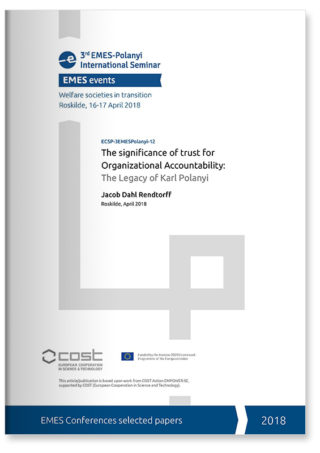Abstract
We can analyse trust and accountability as developed in business ethics and codes of conduct in order to build up social stability in economic interactions as a constitutive element of corporate citizenship. Economics is dependent on social relations based on common expectations, cultures, communities and strong social ties. Expectations of trust or mistrust contribute to the facilitation of social interaction. Trust is necessary because it stabilizes expectations to social actors in communication and exchange. External and internal relations of trust are the basis for integrating the firm in the civic traditions of society.
Karl Polanyi developed this concept of the embeddedness of economic activity in the culture of a society in his work The Great Transformation. The Political and Economic Origins of Our times (1944). This idea of embeddedness was further analyzed by Marc Granovetter to imply that economic interactions cannot be separated from their embeddedness in civil structure of society. Due to the embeddedness of economic transactions in social structure, trust is also important in interactions between different companies. Accordingly, even though neoclassical economics regards the firm as independent from social relations, the cultural view of the firm inscribes economic actions in general relations of social exchange and reciprocity of society. Moreover, firms have to communicate their capacity of institutional stability in a society of transformation with many different stakeholders. Accordingly, we can argue that trust and accountability is important for the establishment of good ethics and corporate citizenship as an embedded factor of civic relations in society.
To read the full paper, please download the pdf











